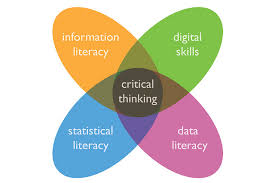Everything English had delegates from all over the North East in attendance at our Secondary Ready – English at Key Stage Two course, and this provided a great platform for discussion in itself. Such events are always more productive and successful when there is such a willingness to discuss ideas and approaches. Overall it was a great day where it was good to see so many teachers who were positive about their role, and how willing they were to embrace new ideas and approaches to improve the experiences for their students; and support the other staff in their school.
Strengthening links between KS2 and KS3
Having conducted the course, and as a secondary specialist, I do believe that there should be stronger links between the Key Stages of 2 and 3. Most of the delegates agreed that one of the most informative elements of the course was having a full explanation of what the students are expected to do once they reach a secondary school environment. Within the context of the upcoming changes, forging stronger links with feeder schools is going to be even more important, especially as assessment is going to become even less transparent.
The other reality that emerged is that the teaching of English to the More Able at Year 6 is highly specialised. Consequently, primary staff who are not English specialists do need more specific training in how to achieve the highest levels, especially if they are given explicit performance management targets for students to achieve Level 6 in English. Teaching staff do have the general skills to deliver English, but they do need more specific training to teach reading skills and writing. It is essential that they incorporate fresh strategies and approaches into their teaching to maximise the performance of More Able students in English at Key Stage Two.
The Modern Holy Grail
The use of data was also an interesting discussion. Establishing accuracy and consistency is the Holy Grail of modern teaching. Establishing a simple, but effective tracking and monitoring system across the stages is a way of tracking and measuring progress to ensure that all students achieve their potential. A stringent and consistent approach to standardisation across the key stages is also important. Implementing both will ensure accuracy at transitional stages at the end of KS1 and KS2 leading to more informed data.
Thank you
Can I also take this opportunity to thank Louise Bradford for her invaluable contribution on the course as guest presenter. Her willingness to change her own approach to writing, and her input as a moderator of KS2 added an engaging dynamic to the day. She is an excellent practitioner who is always looking for ways to improve her own pedagogy, as well as encouraging the growth of her fellow professionals.
Every delegate gave the course the top rating.
Course feedback included the following points about what was positive about the course:
• A more productive approach to planning and writing, especially with high attainders
• Scaffolding and planning – brilliant ideas
• Ample opportunity to discuss issues and discuss best practice with course leaders and other teachers.
• Focus on audience purpose and context shift from content to structure
• Use of assessment to move learners forward.
• Useful to have information about KS3 and 4 and how literacy and novels are approached.
• How to closely analyse texts.
• Different ways of getting children to say why particular words and phrases are effective.
• Looking at texts to support planning and teaching of more than one genre
• Small group discussions with fellow professionals
In addition, this is how delegates plan to use the course to support their colleagues:
• Review of school policy
• Feedback to staff and review curriculum planning.
• Feedback to Literacy coordinator and staff.
• Deliver whole school CPD
• Key Stage meeting, feedback to staff.
• Make moderation more robust, consistent and accurate – create a moderation policy
There will be another Secondary Ready Course on Tuesday 30th September – refer to teacher courses for the full details, and to book online.

